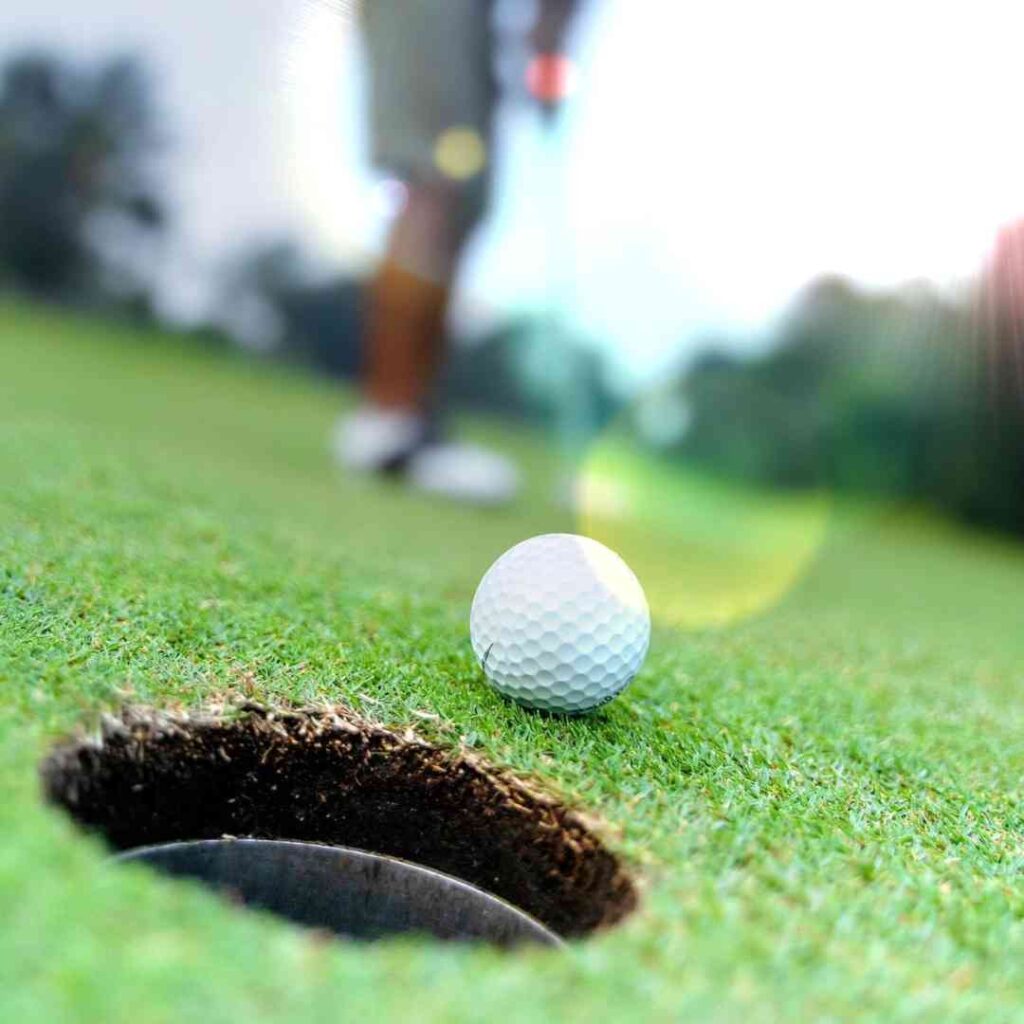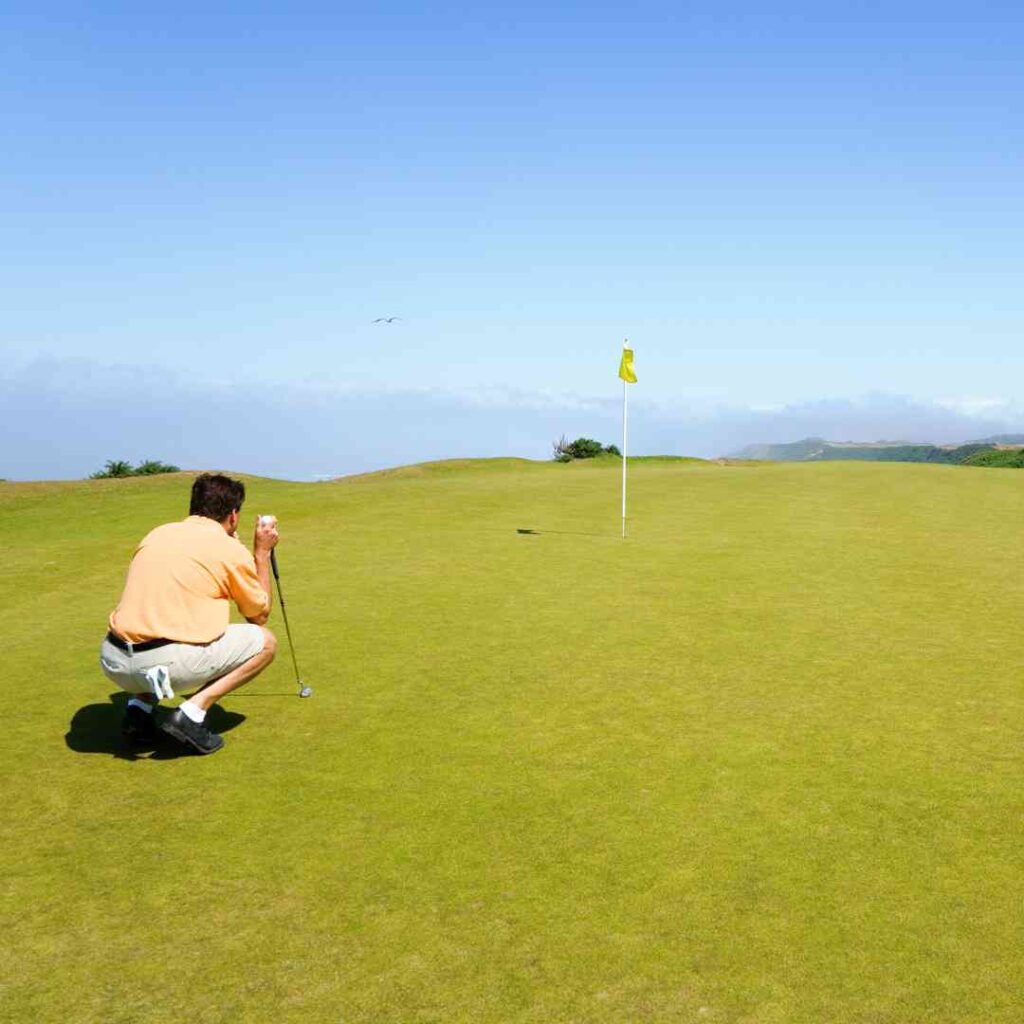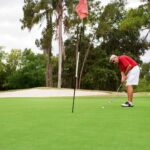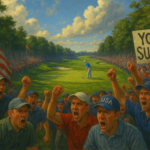Join Our Senior Golfers Newsletter!
Sign up today and receive your free Golf After 60 Bonus Stretch Guide!
Golf is often touted as a game of precision and skill, but for senior golfers, it becomes a battleground of the mind. As physical prowess diminishes with age, the mental game takes center stage. The ability to maintain focus, manage emotions, and stay resilient under pressure can significantly impact performance. This exploration delves into how senior golfers harness their mental faculties to elevate their game, drawing on psychology, neuroscience, and personal anecdotes to paint a comprehensive picture of the mental strategies that distinguish successful senior golfers.

Mental toughness is a crucial attribute for senior golfers. It encompasses resilience, confidence, and the ability to remain calm under pressure. For senior golfers, who may not have the physical advantages of their younger counterparts, mental toughness becomes even more critical.
Resilience in golf is about bouncing back from setbacks, such as a bad shot or a poor round. Senior golfers often have decades of experience dealing with the ups and downs of the game, which can foster a resilient mindset. This resilience is not just about enduring tough times but also about learning from them and using those lessons to improve.
Confidence is another key aspect of mental toughness. Senior golfers often have a wealth of experience to draw upon, which can bolster their confidence. However, maintaining this confidence can be challenging, especially when faced with the physical limitations that come with age. Techniques such as visualization, positive self-talk, and recalling past successes can help senior golfers sustain their confidence on the course.
Remaining calm under pressure is essential in golf, where the stakes can be high, and the margin for error is slim. Senior golfers often use mindfulness techniques, such as deep breathing and meditation, to stay composed in stressful situations. This calmness allows them to make better decisions and execute their shots more effectively.
Cognitive strategies are mental techniques that senior golfers use to enhance their performance. These strategies include goal setting, visualization, and concentration.
Setting specific, measurable, achievable, relevant, and time-bound (SMART) goals can help senior golfers stay motivated and focused. Goals provide a clear direction and a sense of purpose, which can enhance performance. For example, a senior golfer might set a goal to improve their putting accuracy by a certain percentage over a specific period. This goal can then be broken down into smaller, manageable steps, such as practicing putting for a certain amount of time each day.
Visualization involves creating a mental image of a successful performance. This technique can help senior golfers improve their focus, build confidence, and reduce anxiety. By visualizing a successful shot or round, golfers can mentally rehearse their performance and prepare themselves for success. Visualization can be particularly useful in pressure situations, as it allows golfers to mentally practice staying calm and focused.
Concentration is the ability to focus on the task at hand while blocking out distractions. Senior golfers often use routines and rituals to enhance their concentration. For example, a golfer might develop a pre-shot routine that helps them focus on their target and execute their shot. This routine can include physical actions, such as taking a deep breath or aligning their body, as well as mental actions, such as visualizing the shot and repeating a positive affirmation.
Emotional regulation is the ability to manage one’s emotions effectively. In golf, where emotions can run high, this skill is particularly important. Senior golfers often use strategies such as mindfulness, cognitive restructuring, and relaxation techniques to regulate their emotions.
Mindfulness involves paying attention to the present moment without judgment. This technique can help senior golfers stay focused and calm, even in stressful situations. By practicing mindfulness, golfers can become more aware of their thoughts and emotions and learn to manage them more effectively. For example, a golfer might use mindfulness to stay present and focused during a round, rather than dwelling on past mistakes or worrying about future shots.
Cognitive restructuring involves changing negative thought patterns into positive ones. This technique can help senior golfers manage their emotions and build confidence. For example, a golfer who tends to think “I’ll never make this putt” might learn to replace this thought with a more positive one, such as “I can make this putt if I focus and stay calm.” This shift in thinking can reduce anxiety and improve performance.
Relaxation techniques, such as deep breathing, progressive muscle relaxation, and visualization, can help senior golfers manage stress and stay calm under pressure. These techniques can be used before, during, and after a round to maintain a relaxed and focused state of mind. For example, a golfer might use deep breathing to calm their nerves before a crucial shot, or progressive muscle relaxation to release tension after a tough round.

Understanding the neuroscience behind golf can provide valuable insights into how senior golfers can enhance their mental game. The brain plays a crucial role in motor control, decision making, and emotional regulation, all of which are important for golf performance.
The brain’s motor cortex is responsible for planning, controlling, and executing voluntary movements. For senior golfers, maintaining motor control can be challenging due to age-related changes in the brain and body. However, regular practice and mental rehearsal can help reinforce neural pathways and improve motor control. For example, visualizing a golf swing can activate the same neural pathways as physically performing the swing, which can help maintain and improve motor skills.
Decision making is a critical aspect of golf, as golfers must constantly make choices about club selection, shot strategy, and risk management. The prefrontal cortex, which is involved in decision making, tends to decline with age. However, senior golfers can use strategies such as deliberate practice, experience-based intuition, and cognitive training to enhance their decision-making skills. For example, reflecting on past rounds and analyzing decisions can help golfers learn from their experiences and make better choices in the future.
The amygdala and prefrontal cortex are involved in emotional regulation. As golfers age, they may experience changes in these brain regions that can affect their ability to manage emotions. However, mindfulness, cognitive restructuring, and relaxation techniques can help senior golfers regulate their emotions and maintain a positive mindset on the course.

In Golf: The Ultimate Mind Game Rick Sessinghaus maps out the
mental and emotional skills needed to play your best golf. Throughout this
book you will be learning the latest performance psychology skills to improve
how you perform on and off the golf course.
Personal anecdotes and success stories can provide inspiration and insight into how senior golfers use mental strategies to elevate their performance. Many senior golfers have shared their experiences of overcoming challenges and achieving success through mental toughness, cognitive strategies, and emotional regulation.
Tom Watson, a legendary golfer, is known for his mental toughness and ability to perform under pressure. In 2009, at the age of 59, Watson nearly won The Open Championship, demonstrating that age is not a barrier to success in golf. Watson’s performance was attributed to his mental resilience, focus, and experience. His story illustrates how senior golfers can use their mental game to compete at the highest level.
Bernhard Langer, another successful senior golfer, has credited his mental game for his continued success on the Champions Tour. Langer emphasizes the importance of goal setting, visualization, and emotional regulation in maintaining his performance. His disciplined approach to the mental game has allowed him to remain competitive well into his senior years.
The mental game is a crucial component of golf, especially for senior golfers. As physical abilities decline with age, mental toughness, cognitive strategies, and emotional regulation become increasingly important for maintaining and improving performance. By understanding and applying these mental techniques, senior golfers can continue to enjoy the game and achieve success on the course. Personal anecdotes and success stories from legendary golfers like Tom Watson and Bernhard Langer provide inspiration and practical insights into how the mental game can elevate performance at any age. Whether it’s through resilience, confidence, goal setting, visualization, mindfulness, or relaxation techniques, the mental game offers powerful tools for senior golfers to enhance their performance and enjoy the game to the fullest.




